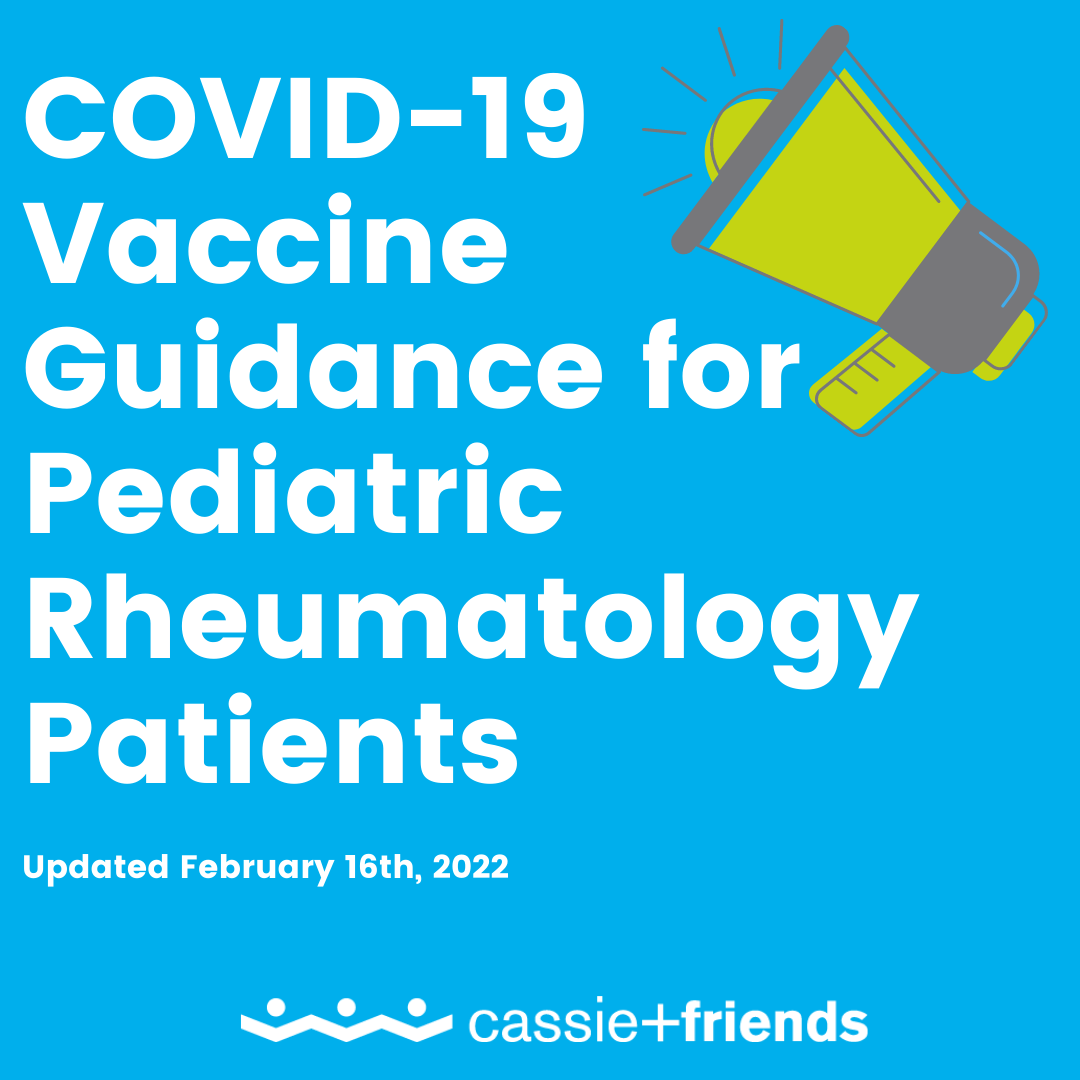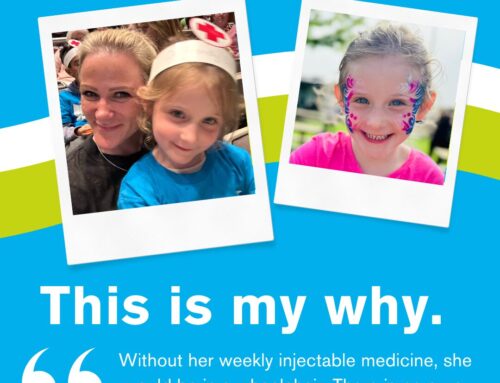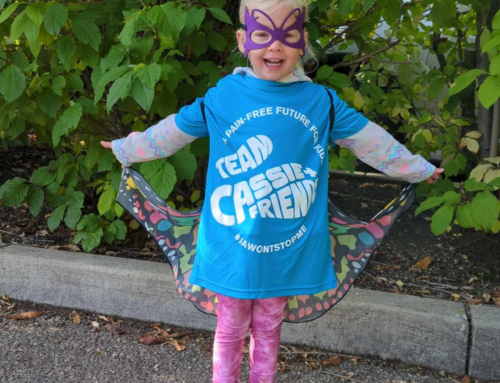***MEDICAL ADVISORY UPDATE: COVID-19 VACCINATION UPDATE + SAFETY DATA***
It has been a while since we have provided a COVID update, and we know a lot has been happening for children and youth with arthritis and rheumatic diseases, and their families. It has been a challenging time for so many, and difficult to keep up with the new information coming out every week. Please see below for an important update and new FAQs answered by our Medical Advisory Committee and, as always, keep in mind that information varies from province to province, so your best source of information is always going to be:
- Your provincial health service.
- Your pediatric rheumatology team.
Sincerely,
Cassie + Friends Medical Advisory Committee

COVID-19 Vaccine Recommendation Update:
The Canadian National Advisory Committee on Immunization (NACI) published updated recommendations regarding COVID-19 vaccines for children 5-11 years of age (Jan 25, 2022).
With consideration of safety data more recently published and benefits of vaccination in preventing severe COVID-19 and complications in children and teens, NACI recommends full immunization of children ages 5-11 yrs, with 2 doses of Pfizer-BioNTech vaccine (interval between first and second doses varies by provincial recommendation).
With respect to children considered immunosuppressed, NACI recommends they should get a primary vaccine series of three doses of Pfizer BioNTech vaccine, with 4-8 weeks in between doses.
For those children who previously received 2 doses of vaccine, they should be offered the 3rd dose using an interval of 4-8 weeks after the 2nd dose.
The definition of ‘immunosuppressed’ includes all children on treatments such as rituximab, high dose steroids, biologic agents, methotrexate, leflunomide, azathioprine, mycophenolate mofetil and JAK inhibitors.
Safety of the Pfizer-BioNTech COVID-19 vaccine has been followed carefully and is reassuring. In Canada as of January 2022, over 1,400,000 doses of this vaccine have been given to age 5-11 yr olds, with only 116 adverse events reported. In the US, about 8.7 million doses have been given to age 5-11 yr olds, with a small number of adverse events reported. The risk of myocarditis (episode of heart inflammation) is lower in age 5-11 yr olds compared to 12-17 year olds, with 4 per million doses reported.
Summary
Vaccination of your child with arthritis or rheumatic disease, aged 5-11 yrs, is strongly recommended, and safe. There is important new information about giving a 3rd dose as part of the primary immune series to children taking medication to treat their arthritis and rheumatic disease. We now have far more reassuring safety information about this vaccine in children.
In addition, NACI published updated recommendations regarding COVID-19 vaccines for children 12-17 years of age (January 28, 2022) . NACI now recommends a booster dose, at least 6-months after completion of the primary series of COVID-19 vaccines, in immun0suprressed adolescents 12 to 17 years.
NACI updated recommendations on the use of COVID-19 vaccines in children 5 to 11 years of age
COVID-19-Vaccine-Clinical-Guidance-Rheumatic-Diseases-Summary
Questions:
What should the timing be for a 3rd dose of COVID-19 vaccine for my child who fits in the ‘moderately immunosuppressed’ category?
NACI recommends a minimum of 4-8 weeks between vaccine doses, and there is good evidence that an interval of longer than 4 weeks results in better response. A longer interval can be considered, depending on local risk factors for exposure to COVID and the child’s specific disease factors that might increase their risk for severe disease. You can discuss these issues with your pediatric rheumatology team.
I’ve read that COVID-19 antibodies should be monitored, but my child’s rheumatologist says it is not available. Should these be done?
Testing for COVID-19 antibodies is not generally available except in a research setting, or some very specific clinical circumstances (for example, an antibody test may be done in the work up of a child with suspected Multisystem Inflammatory Condition after COVID). However, testing for COVID-19 antibodies for vaccine response are not recommended as a routine test in the American College of Rheumatology Clinical guidance summary, supported by expert guidance that the results of these tests are not easy to interpret, and therefore should not be used in clinical decision-making.









Leave A Comment